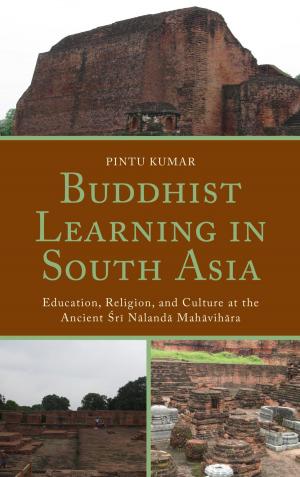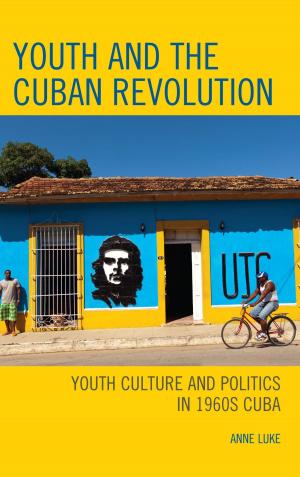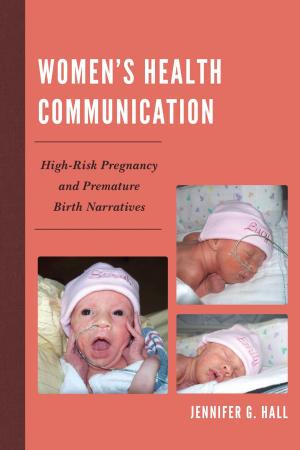Mindful Teaching and Learning
Developing a Pedagogy of Well-Being
Nonfiction, Reference & Language, Education & Teaching, Educational Theory, Educational Psychology, Higher Education, Religion & Spirituality, New Age, Meditation| Author: | Tom Bassarear, Kathryn Byrnes, Sabre Cherkowski, Kelly Hanson, Jennifer Kelly, Margaret Macintyre Latta, Elizabeth Mackenzie, Karen Ragoonaden, Geoffrey Soloway | ISBN: | 9781498506670 |
| Publisher: | Lexington Books | Publication: | July 22, 2015 |
| Imprint: | Lexington Books | Language: | English |
| Author: | Tom Bassarear, Kathryn Byrnes, Sabre Cherkowski, Kelly Hanson, Jennifer Kelly, Margaret Macintyre Latta, Elizabeth Mackenzie, Karen Ragoonaden, Geoffrey Soloway |
| ISBN: | 9781498506670 |
| Publisher: | Lexington Books |
| Publication: | July 22, 2015 |
| Imprint: | Lexington Books |
| Language: | English |
Mindful Teaching and Learning: Developing a Pedagogy of Well-Being features a community of scholar-practitioners from across disciplines, methodologies, and ideological perspectives exploring and examining contexts that support mindful teaching, mindful learning, and a pedagogy of well-being. Collectively, these chapters document and analyze the opportunities and challenges within pedagogical sites and discuss how the disposition of mindfulness can be nurtured and sustained in educational practice and praxis. Bolstered by the positive evidence-based standards emanating from clinical settings, mindfulness based training has spread into a variety of other fields like psychology, healthcare, and more recently, education.
Within pedagogical environments, an emergent secular conception of mindfulness, under the auspices of educational psychologists like Langer (1987; 1997), Goleman, (2008), Lantieri (2008), Roeser, Skinner, Beers, and Jennings, (2012), and Schonert-Reichl and Lawlor (2010), is making headway. Consequently, Mindfulness Training (MT) resources have been applied to educational contexts in order to maximize the academic, emotional, physical, and psychological benefits provided by this mind-body approach to well-being.
Acknowledging the increasing evidence base for the efficacy of mindfulness interventions as well as the elevated stress levels reported by many educators and their students, this book discusses how mindful practices, praxis, and research can inform and support pedagogy, curriculum, and leadership initiatives in higher education in the twenty-first century. Alongside the multitude of recent studies in the area of Mindfulness, contributors discuss their own experiences using Self-study, Contemplative pedagogy, Living Educational Theory, and Curriculum Inquiry. The content of this book examines ways in which to develop habits of mind and courses of action, as well as a curriculum of study that can support educators as they cultivate competencies for thriving and coping with the modern demands of being a teacher.
Mindful Teaching and Learning: Developing a Pedagogy of Well-Being features a community of scholar-practitioners from across disciplines, methodologies, and ideological perspectives exploring and examining contexts that support mindful teaching, mindful learning, and a pedagogy of well-being. Collectively, these chapters document and analyze the opportunities and challenges within pedagogical sites and discuss how the disposition of mindfulness can be nurtured and sustained in educational practice and praxis. Bolstered by the positive evidence-based standards emanating from clinical settings, mindfulness based training has spread into a variety of other fields like psychology, healthcare, and more recently, education.
Within pedagogical environments, an emergent secular conception of mindfulness, under the auspices of educational psychologists like Langer (1987; 1997), Goleman, (2008), Lantieri (2008), Roeser, Skinner, Beers, and Jennings, (2012), and Schonert-Reichl and Lawlor (2010), is making headway. Consequently, Mindfulness Training (MT) resources have been applied to educational contexts in order to maximize the academic, emotional, physical, and psychological benefits provided by this mind-body approach to well-being.
Acknowledging the increasing evidence base for the efficacy of mindfulness interventions as well as the elevated stress levels reported by many educators and their students, this book discusses how mindful practices, praxis, and research can inform and support pedagogy, curriculum, and leadership initiatives in higher education in the twenty-first century. Alongside the multitude of recent studies in the area of Mindfulness, contributors discuss their own experiences using Self-study, Contemplative pedagogy, Living Educational Theory, and Curriculum Inquiry. The content of this book examines ways in which to develop habits of mind and courses of action, as well as a curriculum of study that can support educators as they cultivate competencies for thriving and coping with the modern demands of being a teacher.















